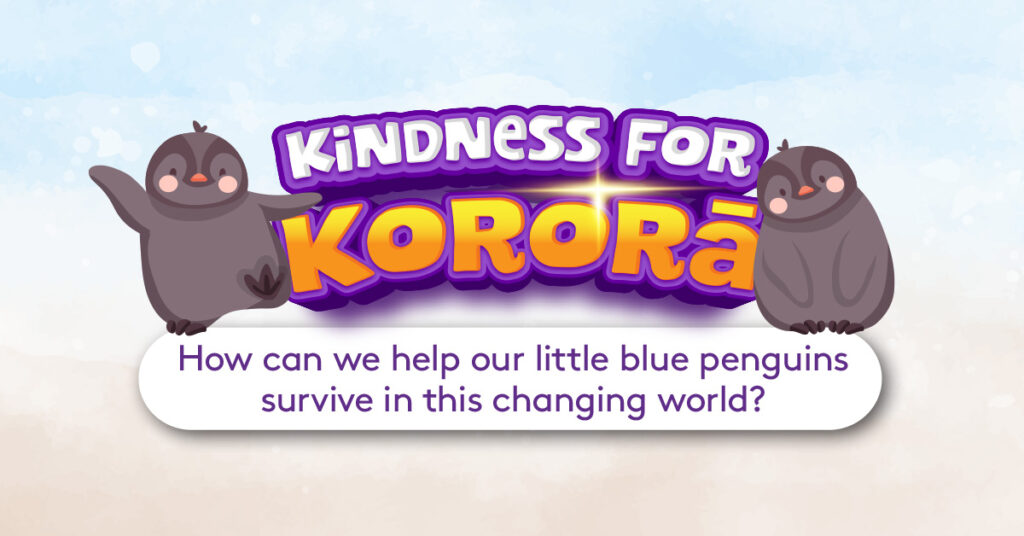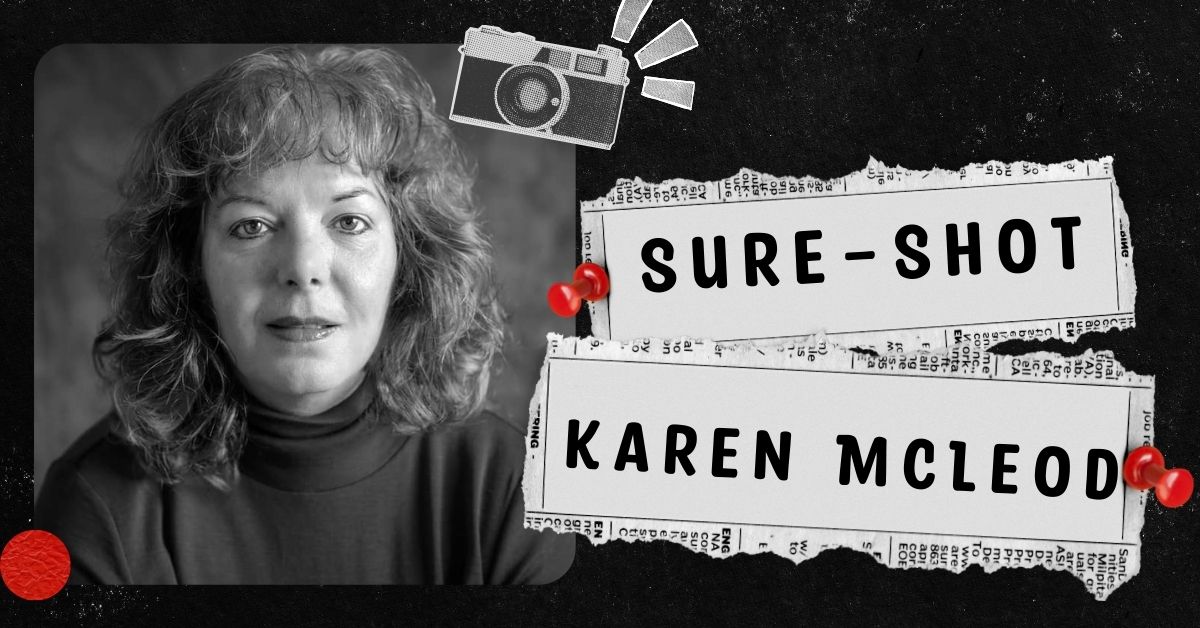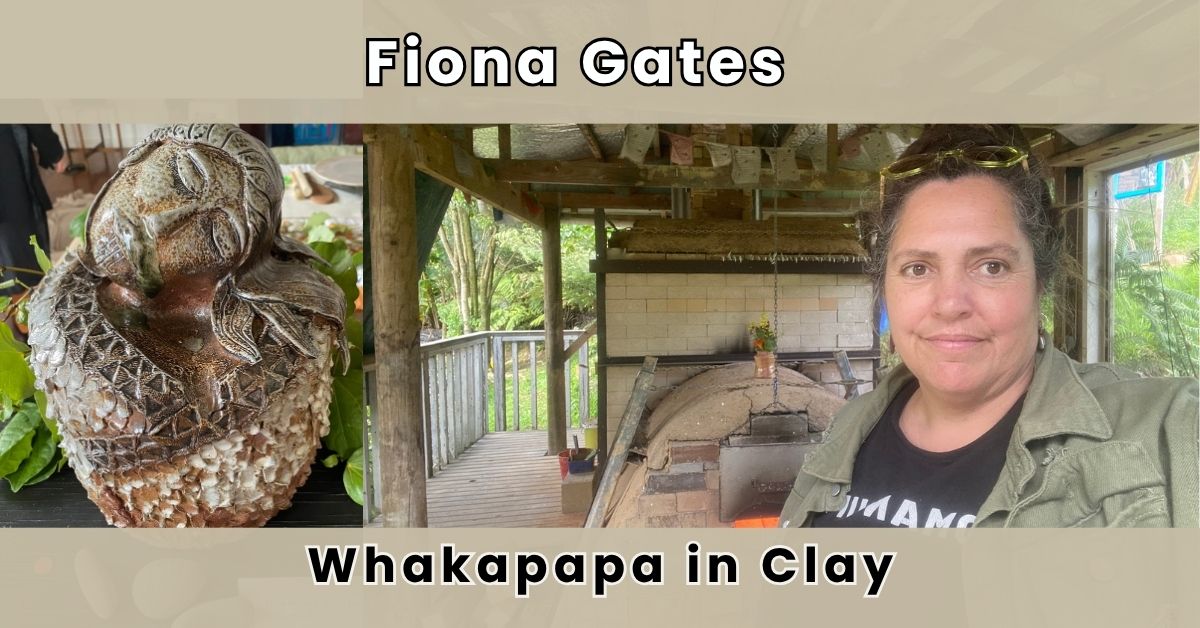
How can we help our little blue penguins survive in this changing world?
With sleek blue feathers, a small yet solid stature and cute pink feet, the kororā (blue penguin) is a beloved part of our coastal wildlife and landscapes. Being the only penguin species naturally found around the North Island coastline, kororā are a taonga (treasure) to many coastal communities, including the likes of Kūaotunu.
While they may be incredibly cute and tempting to cuddle, it is illegal under the current Wildlife Act to approach and handle a penguin. Not only can a person be fined for handling a wild penguin without DOC authorisation, but the penguin may also have a disease that could transfer to the handler and vice versa. Kororā also have a pretty nasty bite, thanks to their hooked beak which helps them catch their fast-moving prey out in the ocean. A healthy adult kororā can travel up to 25 km from the shore in search of food during the day – that’s some champion swimming for such a small creature!
If a penguin is found to be in a dangerous situation such as being surrounded by off-lead dogs or on a busy road, the best thing to do is to call 0800 DOC HOT (0800 362 468) – the Department of Conservation response line. From there, a ranger can provide advice and authorisation for certain response actions to help keep the penguin and people as safe as possible. If a penguin is found safe and healthy, it’s always best to keep at least a 20 m distance from the animal, including putting dogs on leads and keeping them well away (same rule for seals). Sometimes penguins just need a little rest on shore before heading back out for a feed or they might be on their way to their burrow. Blocking the path to their burrow could lead to them abandoning their home for a new site – possibly leaving a chick or eggs vulnerable to predation. Unfortunately, during breeding season, one adult death could cause two chick deaths (they generally lay a clutch of two eggs) which equals three penguin deaths! This is sadly part of the formula causing the rapid decline in kororā numbers.
Some community groups have DOC permits and are trained to scientifically monitor their local kororā populations. Local populations often live in small colonies dotted around the coast. Colonies are often found within ports, rocks walls, on coastal farmland or in coastal bush areas. While they love a natural burrow, there is a “housing shortage” for many penguins (displaced colonies) as coastal development and erosion destroys their sheltered habitats, badly planned rock wall maintenance kills burrowing penguins and uncontrolled predators such as rats, stoats, hedgehogs, cats and dogs make their habitats unsafe.
Kororā numbers are in national decline so without active human intervention, including monitoring, advocacy, predator control, dog restrictions, habitat restoration (planting and making wooden penguin burrows) and good environmental planning, kororā would be on a certain path to extinction just like the mainland population of hoiho (yellow-eyed penguin) which are predicted to become extinct from the South Island within the next 15 years. We also need to be aware that climate change is adding more pressure on their food sources as their prey move further out to sea towards cooler waters as the temperature rises.
Hope is all but lost for kororā. While we barely ever see them during the day because they come ashore at night to rest and feed their young, you CAN help! Here are some ideas:
- Trap pests along or near the dunes
- Participate in your local Coastcare group with weeding and planting of native trees and plants
- Keep dogs on leads or away from coastal vegetation
- Keep dogs off beaches at night
- Keep cats indoors at night (I’ll write another article on cats sometime)
- Pick up beach litter
- Build a wooden penguin burrow and place it in a sheltered coastal spot
- Contact DOC (0800 362 468) if you find a dead or injured penguin or other marine wildlife
- Continue learning and talking about kororā / blue penguins with friends and family
Forest and Bird Waikato Regional Conservation Manager
& Penguin Citizen Scientist
e.vanderleden@forestandbird.org.nz
“You can’t care about what you don’t know about”
Words by Elvisa Van Der Leden






